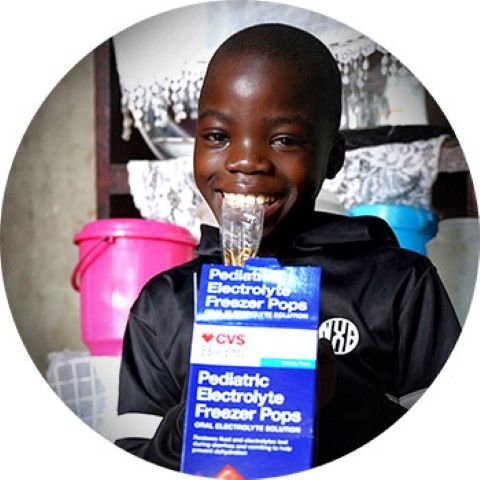The country’s last major outbreak was in 2017-2018, when the disease spread to seven other provinces. Cholera is a waterborne illness that produces a toxin in the small intestine. Left untreated, severe cholera can lead to dehydration and cause shock, coma and even death within hours.
In communities where we work closely with families, diseases like cholera are an ongoing health challenge – often just another risk those living in underprivileged neighborhoods must regularly contend with.

Having any member of a disadvantaged household become infected is a magnified emergency. First, of course, is their fear for their loved one’s well-being and the need to access care. Cruelly, that care then compounds their financial problems because supplies and medicines often require out-of-pocket expenses that families simply cannot afford.
When Daniel, who has been enrolled in our programs since he was 6, fell critically ill with cholera, our staff was there, helping the family battle for Daniel’s life. Armed with health knowledge and support from Children International, Daniel’s parents acted quickly once it became apparent just how ill he’d become. Getting him to the nearest hospital may have saved the boy’s life.
In Lusaka — and everywhere we work — Children International’s Connecting with Families Program ensures that local staff regularly maintain contact with sponsored children’s families. This program is a powerful tool for connection and has an amplifying effect on the impact our supporters make possible. Through regular contact with families, our local staff in each country assess families' needs, connect them to needed services and help them stay engaged with our transformative programs.
So, when the cholera outbreak happened, staff in Lusaka easily interacted with families in virtual outreach sessions, centering on cholera prevention measures and checking on their well-being. This connection proved to be a lifeline for Daniel’s family once his health became critical.
When Daniel was admitted to the hospital — and after he was discharged — the family received material assistance from Children International that helped them through a dire time. Food vouchers helped nourish Daniel’s frail body. Essential items such as syringes, diapers and clothing eased their worries. And the supply of oral rehydration solution the organization helped provide was a vital aspect of the boy’s recovery.
While grateful for that assistance, Daniel’s parents shared that the support they received was more than material.

Daniel’s father, Evans, is thankful his son is recovering and that his financial anxieties were eased. “Being in a place where every coin counts,” he says, “it is difficult to save money for emergencies. Children International brought comfort and support when it mattered the most.”
Comments
You must be logged in to comment. If you have an account, click here to log in.